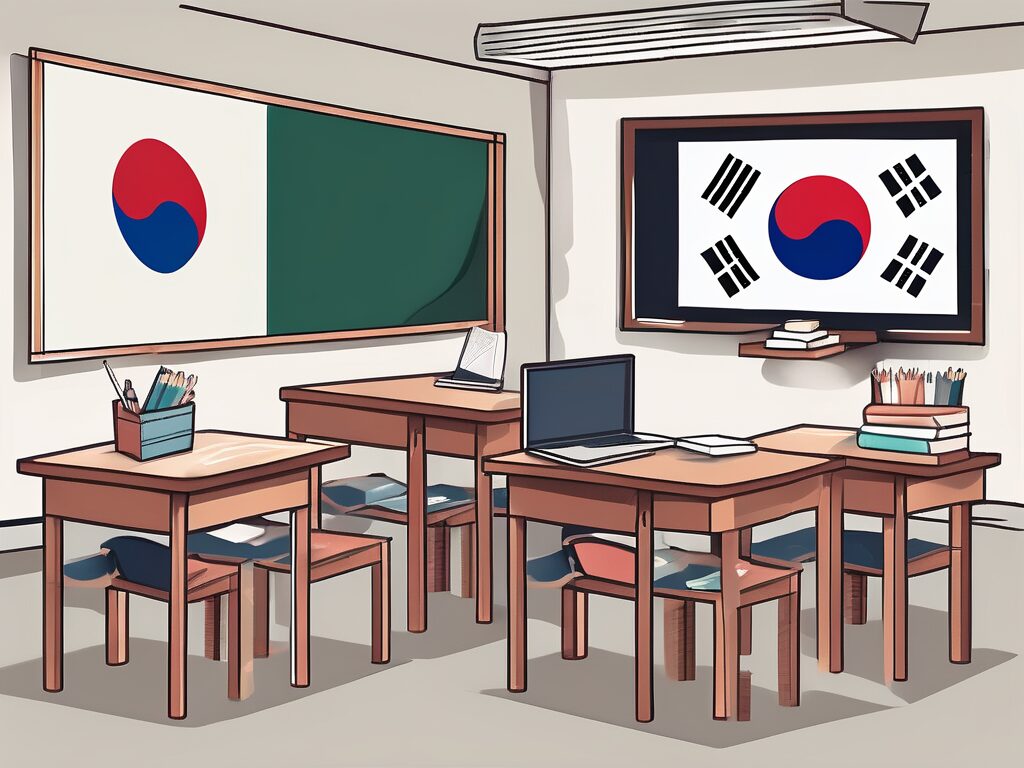Embarking on a teaching career in South Korea can be an exciting adventure. However, before you can pack your bags and head to the Land of the Morning Calm, you’ll need to navigate the interview process. This can be a daunting task, especially if you’re not familiar with the types of questions you might be asked. But fear not, we’re here to help you prepare. In this comprehensive guide, we’ll explore some of the most common interview questions for teaching positions in South Korea, and provide some tips on how to answer them effectively.
Understanding the South Korean Education System
Before we dive into the interview questions, it’s important to have a basic understanding of the South Korean education system. This knowledge will not only help you answer the questions more effectively, but it will also demonstrate your commitment and interest in the role.
South Korea places a high value on education, with a strong emphasis on academic achievement. The education system is divided into three parts: six years of primary school, followed by three years of middle school, and then three years of high school. There is also a strong demand for English language education, with many parents enrolling their children in private language institutes known as hagwons.
As an international teacher, you may find yourself working in a public school, a private school, or a hagwon. Each of these settings will have its own unique challenges and rewards, and it’s important to be prepared for the differences.
Common Interview Questions
Now that we’ve covered some background information, let’s move on to the main event: the interview questions. While every interview is different, there are some questions that are commonly asked in interviews for teaching positions in South Korea.
Question 1: Why do you want to teach in South Korea?
This question is a staple in many interviews, and South Korea is no exception. Interviewers want to know why you’re interested in their country and their education system. Your answer should reflect your genuine interest in South Korean culture and education, and demonstrate that you’ve done your homework.
For example, you might mention your fascination with South Korean history and culture, your desire to experience life in a different part of the world, or your interest in the South Korean education system’s emphasis on academic achievement.
Question 2: How would you handle a classroom of students with varying English proficiency levels?
As an English teacher in South Korea, you’re likely to encounter students with a wide range of English proficiency levels. Interviewers want to see that you’re prepared to handle this challenge and that you have strategies in place to ensure that all students can learn effectively.
You might talk about differentiating your instruction to meet the needs of all students, using visual aids and realia to support understanding, or incorporating group work to encourage peer learning.
Question 3: How would you deal with a disruptive student?
Classroom management is a key skill for any teacher, and it’s especially important in an international setting where language and cultural barriers can add an extra layer of complexity. Interviewers want to know that you can maintain a positive and productive learning environment, even when faced with challenging behaviour.
You could discuss your approach to setting clear expectations and consequences, your strategies for redirecting inappropriate behaviour, or your experience with conflict resolution techniques.
Preparing for Your Interview
Now that you’re familiar with some of the most common interview questions for teaching positions in South Korea, it’s time to start preparing your answers. Remember, the key to a successful interview is to be authentic and well-prepared.
Take some time to reflect on your experiences and skills, and think about how they relate to the job you’re applying for. Practice your answers out loud, and consider doing a mock interview with a friend or family member. And most importantly, remember to relax and be yourself. After all, teaching is all about connecting with people, and that’s exactly what you’re trying to do in your interview.
Conclusion
Applying for a teaching position in South Korea can be a challenging process, but with the right preparation, you can navigate your interview with confidence. By understanding the South Korean education system, anticipating common interview questions, and preparing thoughtful and authentic answers, you’ll be well on your way to landing your dream job in the Land of the Morning Calm. Good luck!
Enhance Your Teaching Career with IPGCE
Ready to take your teaching aspirations in South Korea to the next level? Join the UK’s #1 Teacher Training Course, the International Postgraduate Certificate in Education (iPGCE), and overcome the common barriers to international teaching success. With the iPGCE, you’ll not only meet stringent qualification requirements but also significantly increase your chances of interview callbacks and job opportunities. Experience a 45% boost in promotion rates, a substantial salary increase, and connect with a global network of educators. Our flexible online study options are designed to fit around your busy schedule, ensuring you can work towards a deeper professional development without compromising your current commitments. Don’t let inadequate credentials or limited understanding of global education systems hold you back. Join the UK’s #1 Teacher Training Course today and become a more adaptable, connected, and qualified educator ready to thrive in South Korea and beyond.

